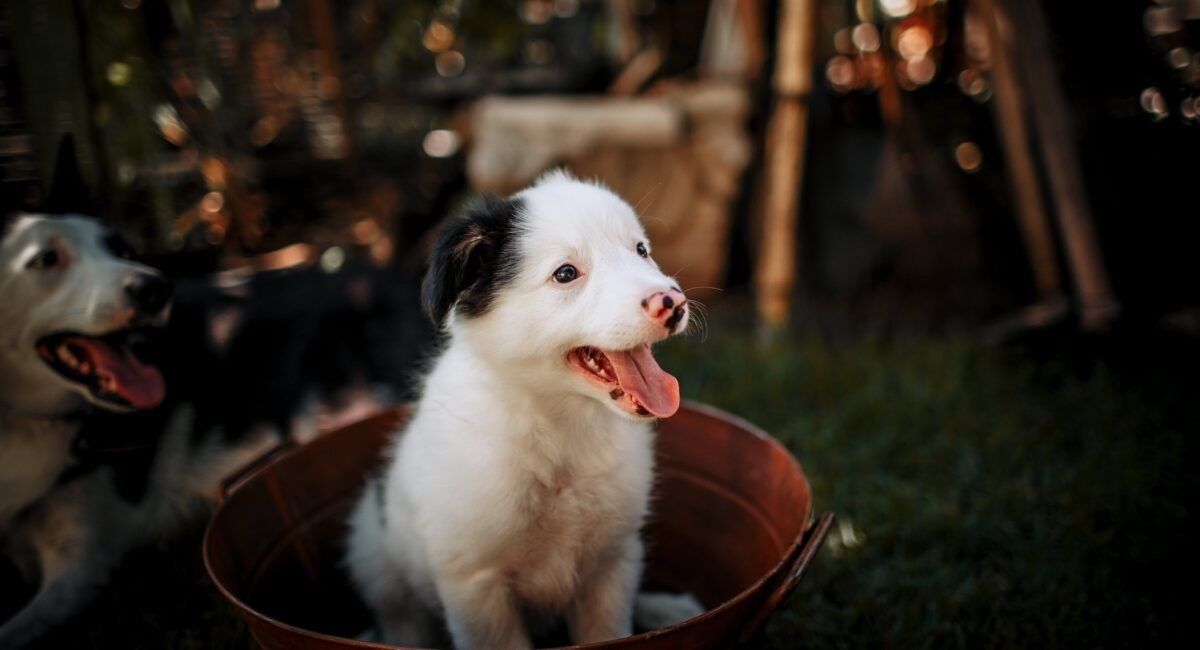Looking After A Puppy
- 4 February 2024
- BuyAPet Editorial Team
- All Dogs, Dog Health
Puppy Care
Looking After a Puppy
Getting a dog is incredibly exciting — and a big commitment. Use this practical, friendly guide to prepare your home, plan the first weeks, and set up good habits for life.
What you’ll learn
- How to prepare your home and budget for a puppy.
- First-weeks routine: sleep, toilet training, socialisation.
- Training milestones from 8–12 weeks to 6 months+.
Tip: Keep treats and toys handy to reward every moment you love. Behaviour that’s reinforced is behaviour you’ll see again.
Before your puppy’s arrival Less than 8 weeks
You’ve chosen your puppy, spoken to a reputable breeder or adoption centre, and set a collection date. Now’s the moment to prepare your home and routine so those first days feel calm and safe.
- Puppy-proof rooms (secure wires, block unsafe spaces, remove toxic plants).
- Register with a local vet; book vaccines and a new-owner check.
- Choose a sleeping area and set a simple day–night routine.
- Book early training/socialisation classes (spaces go fast!).
Bringing a puppy home 8–12 weeks
Your puppy’s first few days can be overwhelming for them. Create a cosy den with blankets and cuddly toys, and expect extra naps between short bursts of play.
Essentials to ask for
- Kennel Club registration & pedigree certificate
- Diet sheet & feeding schedule
- Worming & vaccination details
- Healthcare advice & breeder/vet contact
- Blanket with litter scent (comfort)
First week goals
- Frequent gentle handling & positive experiences
- Short alone-time sessions to build confidence
- Reward calm behaviour with treats/play
Puppy training & socialisation 12 weeks+
After second vaccinations, expand your puppy’s world: short walks, calm dog meet-ups, and daily training reps (1–3 minutes per cue).
- Introduce large & small dogs carefully; praise relaxed body language.
- Meet people of all ages and appearances in a positive way.
- Join puppy classes for structured learning & confidence.
- Practice short “alone time” to prevent separation issues.
Further training & neutering 6 months+
Puppies are still learning. Keep training reward-based and consistent, and give regular downtime to avoid overstimulation.
- Crate time helps rest and bladder control.
- Progress to adult food per vet advice:
- Small breeds: ~6–10 months
- Medium breeds: up to 12 months
- Large breeds: ~15–18 months
- Ask your vet about neutering timing.
Puppy care: the big picture
Whether you’re new to dogs or just a bit rusty, the golden rules stay the same: reinforce what you like, socialise thoughtfully, and keep new experiences positive. That’s how you raise a happy, well-rounded family dog.
Frequently Asked Questions
How often should a puppy eat?
8–12 weeks: 4 small meals daily • 3–6 months: 3 meals • 6 months+: 2 meals. Follow the breeder/vet diet and adjust for body condition.
When can my puppy go outside?
After the second vaccination your vet advises it’s safe for public areas. Before then, carry them for new sights/sounds and use a secure garden.
Best way to toilet train?
Take out after waking, eating, playing, and every 30–60 minutes. Praise the moment they finish in the right place; quietly clean accidents.
Do I need pet insurance?
It’s highly recommended. Choose a policy you can keep for life; check limits for ongoing conditions and exclusions.
How much exercise is safe?
Use the “5 minutes per month of age” rule for lead walks, plus lots of free sniffing, training games, and rest. Avoid high-impact jumping.
When should I neuter?
Timing depends on breed, size, and behaviour goals. Discuss pros/cons with your vet during routine checks to decide the best window.
Ready for the big day?
Download the checklist, book your vet visit, and enjoy the journey — puppy months go fast!
